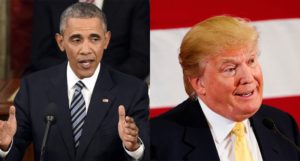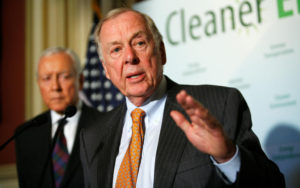Illinois state Sen. Barack Hussein Obama told us during the 2004 Democratic National Convention while he delivered the keynote speech that “only in this country is my story possible.”
He was a self-proclaimed “skinny kid with a funny name.”
Indeed, his story was a remarkable one: a black father who was born in Kenya; a white mother from Kansas; Mom and Dad split when young Barack was a boy; Barack barely knew his father; Mom and her young son moved from Hawaii to Indonesia; Barack got a first-class education, went into public service — as a community organizer, a state senator and a U.S. senator — then got elected president of the United States.
This was not a silver-spoon existence. His election as president was a most unlikely event, given the many circumstances of his early life.
He demonstrated that “anyone” can be elected to the highest office in the nation.
Hmmm. How about that.
Donald Trump, I submit, has some commonality with his immediate predecessor. It’s not that Trump was born into a similar family situation, or that his parents struggled financially.
But think about this: In his way, Trump, too, has shown that “anyone” can be elected president of the United States.
Where’s the symmetry? It’s kind of weird, but consider some aspects of this man’s life.
He grew up the son of wealthy parents. He went to a military high school; he then graduated from an Ivy League university; he went into business when Daddy Trump staked him a few million bucks to get started; he built the business into an empire.
OK, here’s some more strange circumstance. Trump would get married three times; he would cheat on his first two wives and then would brag about it; he was host of a reality TV show; he owned a beauty pageant; he behaved like a boor at times.
Trump never ran for public office. He didn’t serve on a school board, or a city council, or a county commission. He never served in a legislative assembly.
The very first public office he ever sought was the presidency of the United States of America.
Does the president’s history suggest to you that he was well-prepared to become head of state of the greatest nation on Earth?
Me, neither.
Thus, Donald John Trump — just as Barack Hussein Obama before him — demonstrates to me that, by golly, anyone can be elected president of the United States.









